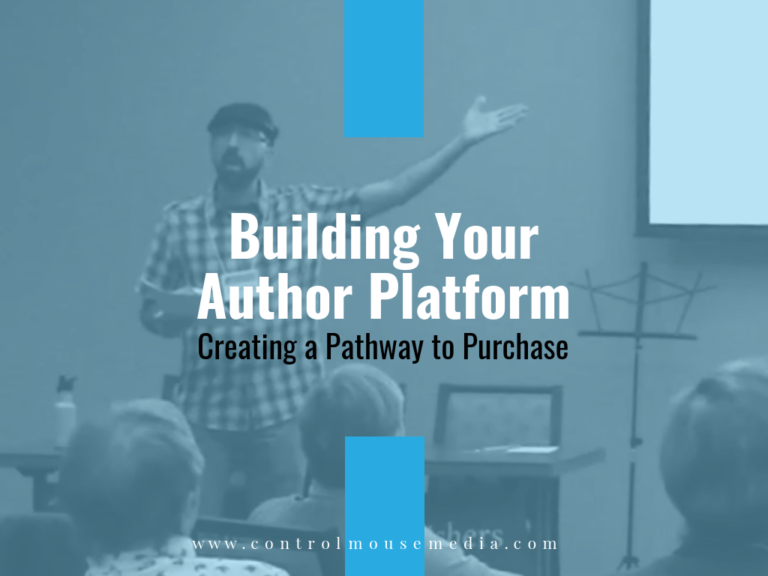Working in Partnership with Your Publisher to Reach and Grow Your Audience
By Rebecca Bush, Commissioning Editor
Book marketing is very much a team endeavour. The publisher’s role is to produce a professional product, provide distribution in industry channels, and amplify an author’s voice. You can read more about the publisher’s role in book marketing in this post from LPP Publisher David Parker.
As an author, you should know that you are the primary marketing platform for your book. If that sounds exciting to you – congratulations, that is one part of your book journey that will hopefully be nice and easy! If, however, you are like many authors and the idea of promoting your own book sounds both terrifying and exhausting – don’t worry, you’re not alone, and book marketing does not have to be onerous or scary.
What should new and aspiring authors expect in terms of marketing activities? Well, firstly, if you are working with a publisher, you should expect that they will support you in your book marketing efforts. You should get guidance and advice that is tailored to your type of book, your platform, and the circumstances – for example, it’s unlikely your publisher will encourage you to do a lot of Facebook posts or TikTok videos if your main audience are mostly on LinkedIn or at in-person conferences.
There are some general activities, though, that are likely to be relevant to most authors, at least to some extent. Here are some of the kinds of actions you might consider taking in order to help your intended audience access your book.
Social Media for Authors
Yes, this may be your “happy place,” or it may be the thing you are most afraid of – but the reality is that social media is one of the widest-reaching and most direct ways to reach your audience. Depending on who you are writing for, you might want to consider using Twitter, LinkedIn, Goodreads, and/or a Facebook profile in order to connect with your audience and promote your book – if you’re confident online, you might also want to think about YouTube, Instagram, TikTok, Snapchat, or other networks that may be specific to your audience or industry, but Twitter, LinkedIn, Goodreads, and Facebook are the main four that most authors will want to consider.
Maybe you’re naturally one of those people who lives their entire life online, in which case – great, keep doing what you’re doing, and simply work your book into the conversations you are already having. If this sounds like torture to you, focus on simply curating a professional persona on one or two of the most important platforms. (We’ll look at how to know which are the most important platforms next.) A little bit of posting and interacting on a regular basis is much more effective than multiple daily link-blasts, so it’s actually better to be yourself and stay broadly within your comfort zone online than to try and become an “influencer” overnight.
Finding Your Audience
Whether online or in person, shouting into the void is going to be a waste of energy, so it’s important to be active in the spaces where your audience already are. If you are writing a book for young people who are very active on TikTok, then cute videos, duets, and stitches are the way to go. But if you’re writing an academic or professional book for students or professionals, then they may be much more active on LinkedIn – maybe they haven’t even heard of the short-video-sharing platform – so becoming a TikTok star won’t help you spread your book’s message.
Similarly, if your audience are attending courses that you teach, or conferences where you can attend or speak, then use those channels that you already have. You want to be very efficient with your energy and your messages – think about who and where your audience are, and then go to them. Can you market to existing clients? Can you use your network to spread the word? Are you a member of any professional associations where your book audience might be?
The best way to find your audience – in person or online – is to start wide and then focus in. Join as many groups as you think might help; say yes to speaking opportunities; start a newsletter; create basic profiles on a wide range of social media platforms. Then, you can quickly see where you are getting a return on your energy investment and focus on those.
Go Easy on the Sales Pitches
A hard sell is off-putting to most people. Whether on social media or in person, if it would be likely to irritate you, it will irritate your audience too. It’s important to balance your “asks” with other types of actions. For every time you post a pre-order link, think about commenting on someone else’s post, or giving a like or share. For every talk you give where your book is available to buy, think about what value your talk offers your audience before they buy your book. Whenever you send out a newsletter, review what you have written for both an “ask” (i.e. please buy my book) with a “give” (e.g. here is some free content, or here is an article I liked, or here is a giveaway competition).
Time it Right
Publishing a book is usually a relatively long process – it may be as much as a year between signing a contract and your book being available. It’s important not to wear your audience out with hype and book-related announcements before there is somewhere for them to actually channel their excitement. Unless your publisher advises you otherwise, keep the majority of your book-specific, directly promotional activities until the pre-orders are open for your book, at the earliest. You don’t want people to be sick of your book before it’s even published!
However, this is only for your book-specific, active promotional activities. The wider activity – getting active on social media, starting to build a newsletter mailing list, finding your audience online, participating in conversations – this needs to start immediately. Interact with people and build relationships with your audience; you want them to know you, trust you, and tell their friends about you. Most importantly, you want to begin talking about your message, and sharing the vision and purpose that led you to write a book in the first place. That way, when it is time to directly promote your book and make asks of your audience, you will already have a context from which to do so. Here at LPP this is even more important; the emphasis in our approach to marketing is about advancing a message, mission and/or purpose over simply maximising book sales.
Be Consistent
Keep your message consistent. If you can get the book cover artwork from your publisher, consider using it across all your social media platforms and website, if you have one. Try to be regular in the way you use social media, too – maybe five minutes a day, maybe once a week, spending a little time posting or interacting. This will help fix the message in your audience’s mind and help you strengthen your relationship with them, because people will know roughly what to expect of you.
Book Marketing: Go Further
There is much more to be learned about book marketing, and this is a very basic primer. This advice is from my years of experience as an editor helping support authors in promoting their books, but I’m not actually a marketing professional, so if you want to work with an expert, or if this has piqued your interest, Lived Places Publishing recommends this course from Michael Boezi to really take your self-promotion skills to the next level: Building Your Author Platform: Creating a Pathway to Purchase.
 |
For polishing your social media expertise in particular, we recommend these podcast episodes from Michael as well:
- Social Media Marketing: 4 Strategies for Channel Selection
- Social Strategy 201: Listening, Asking, Interacting
In summary, here are the things you might consider for marketing your book:
- Get active on social; don’t delay.
- Focus your energy on the places where your intended audience lives.
- Audition different platforms until you find the ones that “fit” you.
- Participate in forums, conferences and associations of direct interest to your book topic.
- Accept every opportunity to speak, blog, write, or podcast when invited.
- Keep in contact with your publisher – it will be more effective if you work as a team.
- Focus on advancing your message, mission, and purpose over the book “hard-sell”.
- Find a balance between promoting your work and genuinely interacting with people.
To submit a proposal and pitch to become a Lived Places author, please see our Call for Authors.
To stay connected with Lived Places Publishing, you can subscribe to our email list, to our channel on Medium, or to our Substack list.
IMAGE CREDIT: Dawn Lio, used under the Pexels License



